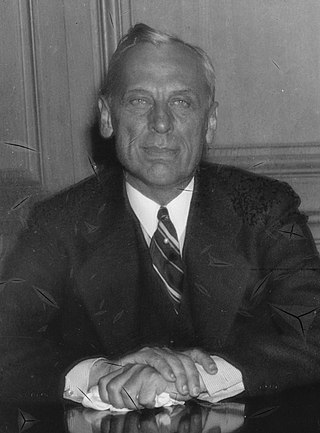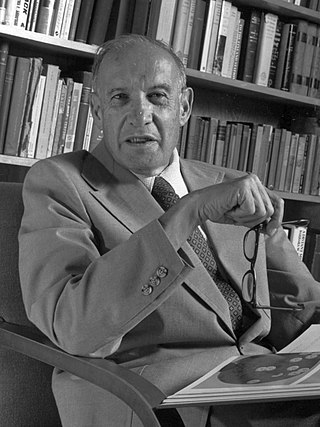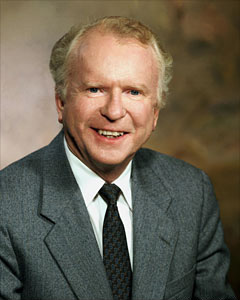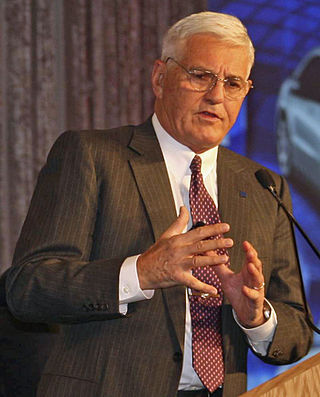Overview
The book is an examination of General Motors' operations, delving into how large corporations impact society on a broad level. Drucker's biographer Jack Beatty referred to it as "a book about business, the way Moby Dick is a book about whaling". [1]
In writing and researching the book, Drucker was given access to General Motors resources, paid a full salary, accompanied CEO Alfred P. Sloan to meetings, and was given free run of the company.
Drucker's focus was the insider view of the company. He focused, in contrast to his contemporaries, on what happened inside a company and how this related to the company's success or failure. Fascinated by this question, he studied management to find out what really made a business tick.
Until then, management was seen as a no-brainer: the CEO would simply give the orders and the others would follow. But Drucker was interested in the human interactions within a company, and more specifically on how power structures, political environments, information flows, decision making and managerial autonomy contributed to success. By shifting his focus, he was able to explain why General Motors was such a success.
General Motors' reaction
GM was very pleased with Drucker's work, until Drucker published his book, Concept of the Corporation. The book strongly praises General Motors for developing management techniques, programs, and infrastructure. But GM interpreted the suggestions that Drucker made—to decentralise the company in order to even become more successful—as betrayal. [2] Their reaction was so strong against his view of the work, that it would lead to Alfred Sloan later treating his memoir, My Years with General Motors, largely as the organization's rebuttal to Drucker's criticisms, and as a curricular counterbalance to his book's seminal influence in the field of management education [2] (which was blossoming as a field of postgraduate study at the time).
For Drucker this was completely unexpected: He found GM a great company, which he had even compared with the U.S. government. Drucker used the term "federal decentralization" to describe it, as he felt that a company should be organized in a number of autonomous businesses. Much like the way the U.S. Government gave power to the states, GM should give its divisions more autonomy. It would take GM several decades to listen. By then, Drucker had helped the Japanese, who embraced his intentions and the hybrid organization form, leap in front of many American companies.

General Motors Company (GM) is an American multinational automotive manufacturing company headquartered in Detroit, Michigan, United States. The company is most known for owning and manufacturing four automobile brands, Chevrolet, GMC, Cadillac and Buick. By sales, it was the largest automaker in the United States in 2022, and was the largest in the world for 77 years before losing the top spot to Toyota in 2008.

Alfred Pritchard Sloan Jr. was an American business executive in the automotive industry. He was a long-time president, chairman and CEO of General Motors Corporation. Sloan, first as a senior executive and later as the head of the organization, helped GM grow from the 1920s through the 1950s, decades when concepts such as the annual model change, brand architecture, industrial engineering, automotive design (styling), and planned obsolescence transformed the industry, and when the industry changed lifestyles and the built environment in America and throughout the world.

The Sloan School of Management at Massachusetts Institute of Technology is the business school of the Massachusetts Institute of Technology, a private university in Cambridge, Massachusetts. MIT Sloan offers bachelor's, master's, and doctoral degree programs, as well as executive education. Its degree programs are among the most selective in the world. MIT Sloan emphasizes innovation in practice and research. Many influential ideas in management and finance originated at the school, including the Black–Scholes model, the random walk hypothesis, the binomial options pricing model, and the field of system dynamics. The faculty has included numerous Nobel laureates in economics and John Bates Clark Medal winners.

Peter Ferdinand Drucker was an Austrian American management consultant, educator, and author, whose writings contributed to the philosophical and practical foundations of modern management theory. He was also a leader in the development of management education, and invented the concepts known as management by objectives and self-control, and he has been described as "the founder of modern management".

Charles Franklin Kettering sometimes known as Charles Fredrick Kettering was an American inventor, engineer, businessman, and the holder of 186 patents. He was a founder of Delco, and was head of research at General Motors from 1920 to 1947. Among his most widely used automotive developments were the electrical starting motor and leaded gasoline. In association with the DuPont Chemical Company, he was also responsible for the invention of Freon refrigerant for refrigeration and air conditioning systems. At DuPont he also was responsible for the development of Duco lacquers and enamels, the first practical colored paints for mass-produced automobiles. While working with the Dayton-Wright Company he developed the "Bug" aerial torpedo, considered the world's first aerial missile. He led the advancement of practical, lightweight two-stroke diesel engines, revolutionizing the locomotive and heavy equipment industries. In 1927, he founded the Kettering Foundation, a non-partisan research foundation, and was featured on the cover of Time magazine in January 1933.
Management by objectives (MBO), also known as management by planning (MBP), was first popularized by Peter Drucker in his 1954 book The Practice of Management. Management by objectives is the process of defining specific objectives within an organization that management can convey to organization members, then deciding how to achieve each objective in sequence. This process allows managers to take work that needs to be done one step at a time to allow for a calm, yet productive work environment. In this system of management, individual goals are synchronized with the goals of the organization.

William Crapo Durant was a leading pioneer of the United States automobile industry and co-founder of General Motors and Chevrolet. He created a system in which a company held multiple marques – each seemingly independent, with different automobile lines – bound under a unified corporate holding company. Durant, along with Frederic L. Smith, co-founded General Motors, as well as Chevrolet with Louis Chevrolet. He also founded Frigidaire.

Roger Bonham Smith was the chairman and CEO of General Motors Corporation from 1981 to 1990, and is widely known as the main subject of Michael Moore's 1989 documentary film Roger & Me.

Harley Jarvis Earl was an American automotive designer and business executive. He was the initial designated head of design at General Motors, later becoming vice president, the first top executive ever appointed in design of a major corporation in American history. He was an industrial designer and a pioneer of transportation design. A coachbuilder by trade, Earl pioneered the use of freeform sketching and hand sculpted clay models as automotive design techniques. He subsequently introduced the "concept car" as both a tool for the design process and a clever marketing device.

Pierre Samuel du Pont was an American entrepreneur, businessman, philanthropist and member of the prominent du Pont family.

Robert Anthony Lutz is a Swiss-American automotive executive. He served as a top leader of all of the United States Big Three automobile manufacturers, having been in succession executive vice president of Ford Motor Company, president and then vice chairman of Chrysler Corporation, and vice chairman of General Motors.
Shareholder value is a business term, sometimes phrased as shareholder value maximization. It became prominent during the 1980s and 1990s along with the management principle value-based management or "managing for value".
In Search of Excellence is a book written by Tom Peters and Robert H. Waterman Jr. First published in 1982, it sold three million copies in its first four years, and was the most widely held monograph in the United States from 1989 to 2006. The book explores the art and science of management used by several companies in the 1980s.
The concept of business process orientation (BPO) is based upon the work of Deming, Porter (1985), Davenport and Short (1990), Hammer, Grover et al. (1995), and Coombs and Hull (1996). This body of work suggests that firms could enhance their overall performance by adopting a “process view” of the organization. Although many firms have adopted the BPO concept, little to no empirical data existed substantiating its effectiveness in facilitating improved business performance. McCormack (2000) conducted an empirical study to explore the relationship between BPO and enhanced business performance. The research results showed that BPO is critical in reducing conflict and encouraging greater connectedness within an organization, while improving business performance. Moreover, companies with strong measures of BPO showed better overall business performance. The research also showed that high BPO levels within organizations led to a more positive corporate climate, illustrated through better organizational connectedness and less internal conflict. Another empirical study by Kohlbacher (2009) reveals that BPO is positively associated with customer satisfaction, product quality, delivery speed and time-to-market speed.

The history of General Motors (GM), one of the world's largest car and truck manufacturers, dates back more than a century and involves a vast scope of industrial activity around the world, mostly focused on motorized transportation and the engineering and manufacturing that make it possible. Founded in 1908 as a holding company in Flint, Michigan, as of 2012 it employed approximately 209,000 people around the world. With global headquarters at the Renaissance Center in Detroit, Michigan, United States, General Motors manufactures cars and trucks in 35 countries. In 2008, 8.35 million GM cars and trucks were sold globally under various brands. Current auto brands are Buick, Cadillac, Chevrolet, GMC, Baojun, and Wuling. Former GM automotive brands include LaSalle, McLaughlin, Oakland, Oldsmobile, Opel, Pontiac, Hummer, Saab, Saturn, Vauxhall, Daewoo, and Holden.
Lean dynamics is a business management practice that emphasizes the same primary outcome as lean manufacturing or lean production of eliminating wasteful expenditure of resources. However, it is distinguished by its different focus of creating a structure for accommodating the dynamic business conditions that cause these wastes to accumulate in the first place.

In the United States, the automotive industry began in the 1890s and, as a result of the size of the domestic market and the use of mass production, rapidly evolved into the largest in the world. The United States was the first country in the world to have a mass market for vehicle production and sales and is a pioneer of the automotive industry and mass market production process. During the 20th century, global competitors emerged, especially in the second half of the century primarily across European and Asian markets, such as Germany, France, Italy, Japan and South Korea. The U.S. is currently second among the largest manufacturers in the world by volume.
ACDelco is an American automotive parts brand owned by General Motors (GM). Factory parts for vehicles manufactured by GM are consolidated under the ACDelco brand, which also offers aftermarket parts for non-GM vehicles. Over its long history it has been known by various names such as United Motors Corporation, United Motors Service, and United Delco. The brand "ACDelco" should not be confused with GM's former AC Delco Systems, formed in 1994 from the merger of AC Rochester Division and Delco Remy Division. In 1995 Delphi Automotive Systems absorbed AC Delco Systems.
William James Reddin also known as Bill Reddin was a British-born management behavioralist, theorist, writer, and consultant. His published works examined and explained how managers in profit and non-profit organizations behaved under certain situations and conditions. The focus of his work was to understand to what extent managers were effective in their role and successful in managing situations to have the right impact on the organization's objectives.
John Dennis McDonald was an American journalist, writer, editor, business historian, fisherman, and horse racing enthusiast.












